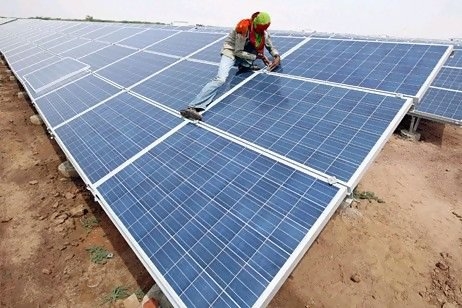Head of the Saudi Electricity Company Ali bin Saleh Al-Barrak said 20 percent of the country's electricity is currently produced without fuel. This is done through implementing a "combined cycle" technology that utilizes the exhaust gases of the company's old power plants and through its solar energy projects. The company's program to reduce dependence on fuel in producing energy started about four years ago, he told Al-Eqtisadiah newspaper, adding the combined cycle technology is implemented in new plants and in expansion projects of old ones.
Nonfuel production of electricity is expected to reach 40% in 6 years
Al-Barrak said the program to reduce the use of fuel in electricity production would continue for another six to seven years until all power plants become combined-cycle ones, after which the nonfuel production of electricity is expected to reach 40 percent, he added.
Responding to a question citing criticism that the company is concentrating on new power plant projects and neglecting the old ones, which caused large-scale disruptions during the summer, he said the company had delayed restoring old power distribution networks as it gave priority to transmission networks and power plants, "but now a strong program to replace the old networks is being implemented."
He said 25 percent of cities' old distribution networks are currently being replaced, and he expected the replacement of all to be completed in the next two to three years.
Al-Barrak's statements come a few days after a Citigroup report warned that Saudi Arabia's dependence on oil for power production as well as its pricing policy could force it to start importing oil by 2030.
A new era of producing electricity through solar energy in the country
After launching the first solar power plant in Saudi Arabia in the region of Farasan last June, Al-Barrak said that such projects "represent a new era of producing electricity through solar energy in the country." He said the solar power plant was linked to the main distribution network in Jazan and it generated about 864,000 kilowatts annually.
Earlier this year, the company's vice president for public affairs, Abdulsalam Al-Yamni, said the success of the Farasan solar energy plant was "the beginning of an important direction for the country in the field of electric power industry." He said the establishment of the Farasan plant was part of the company's clean energy efforts. In the future, the company would expand the plant and implement the system (solar power generation) in other plants, he added.
Arab News
11 September
























































